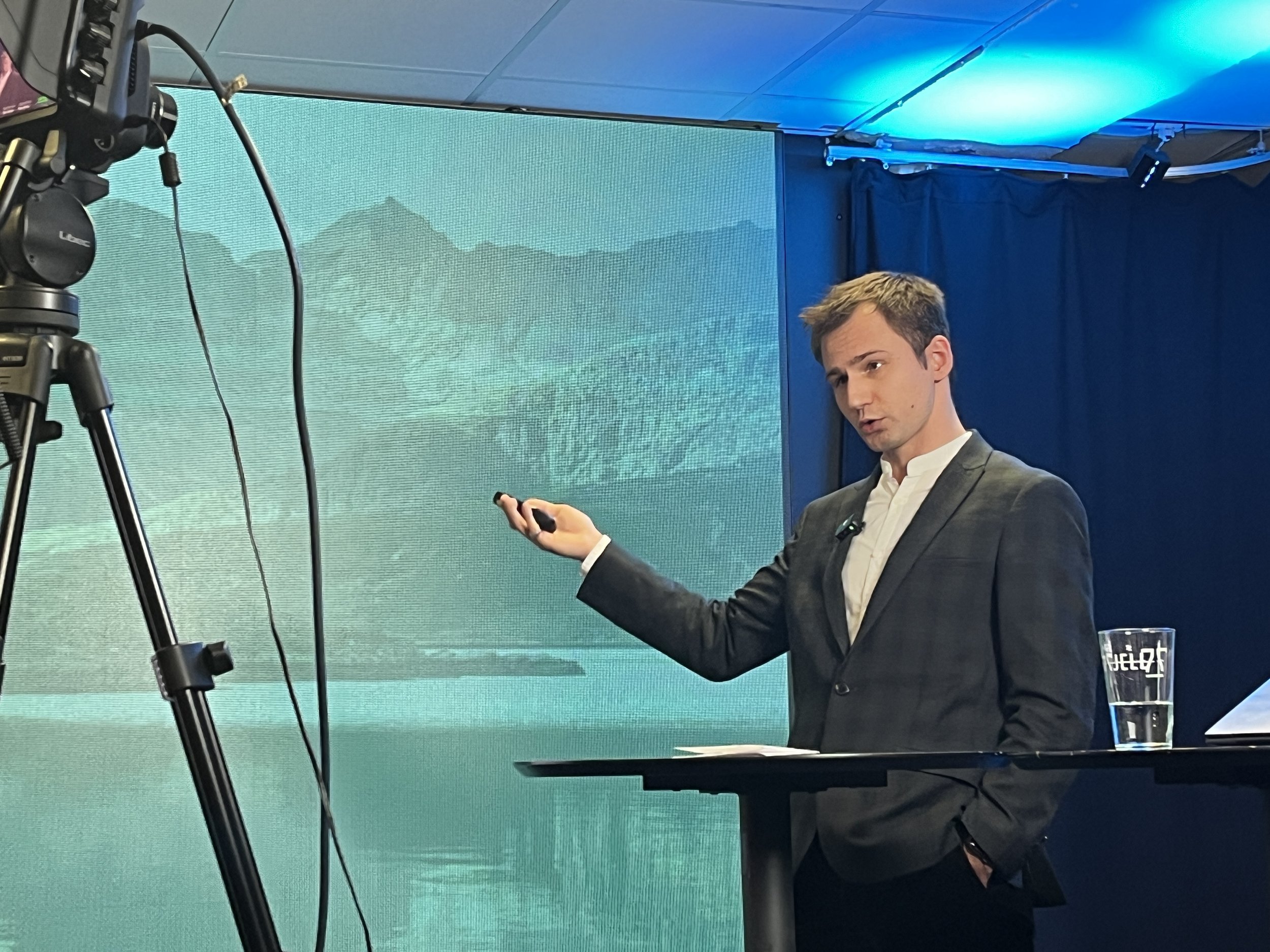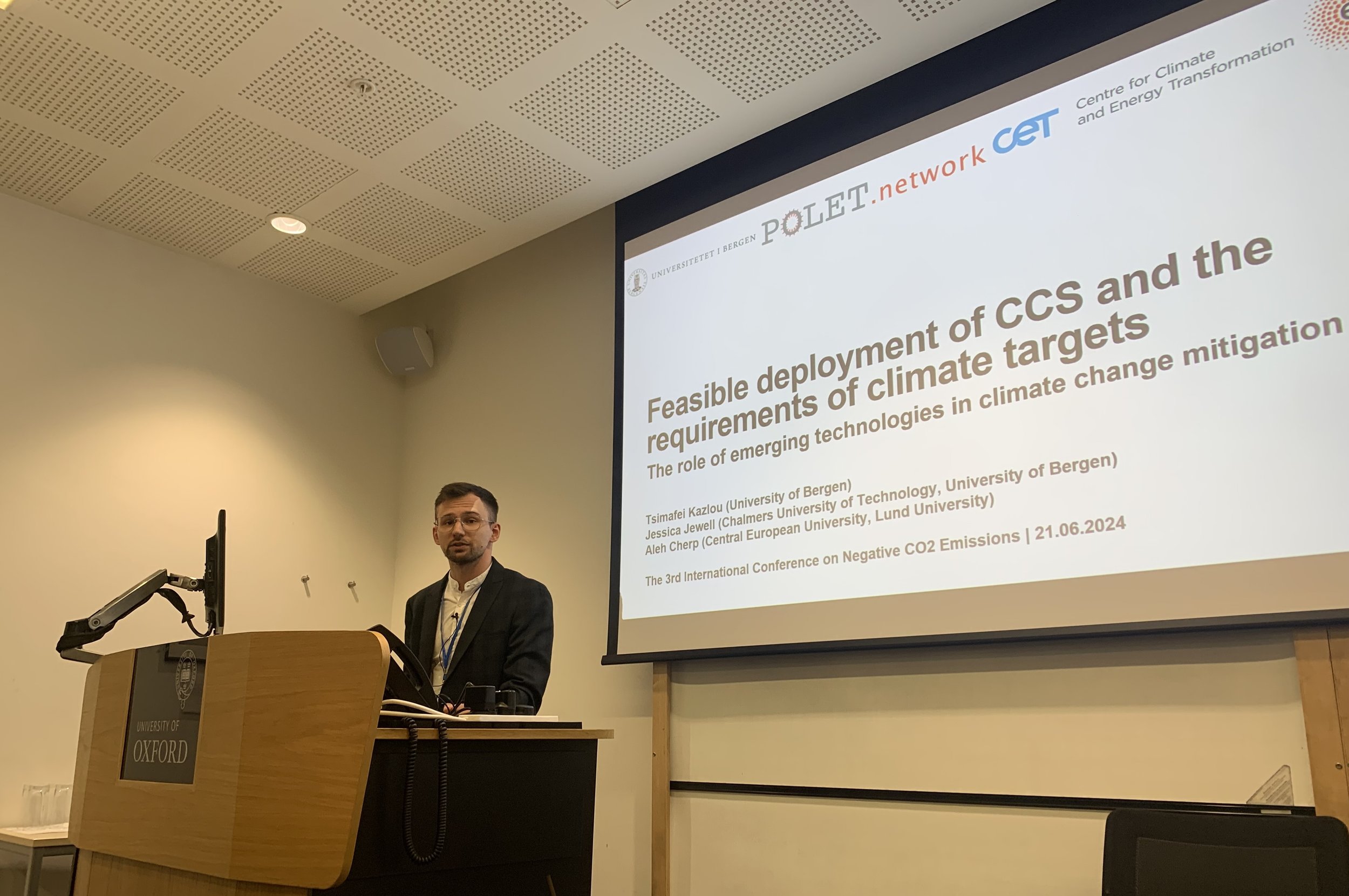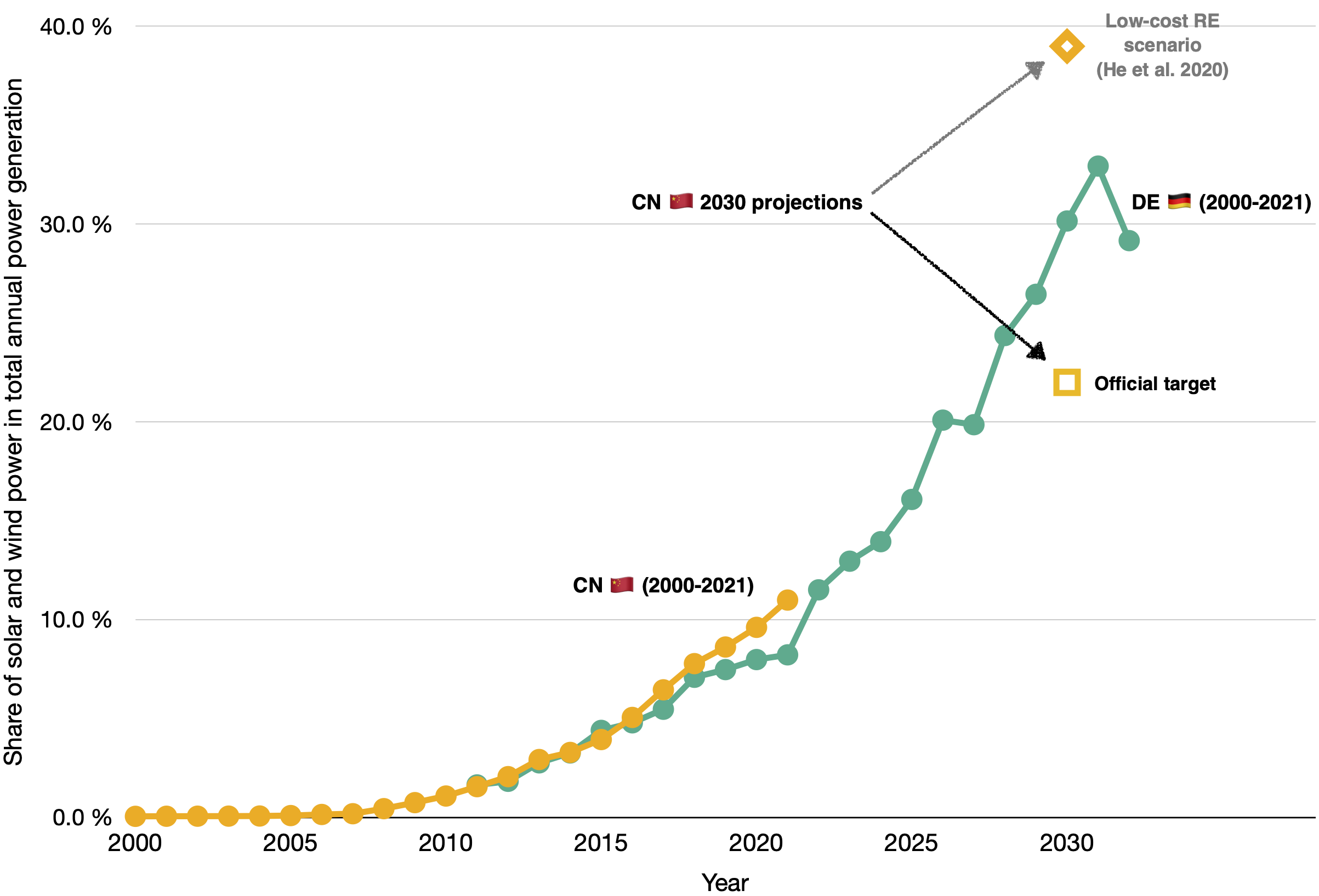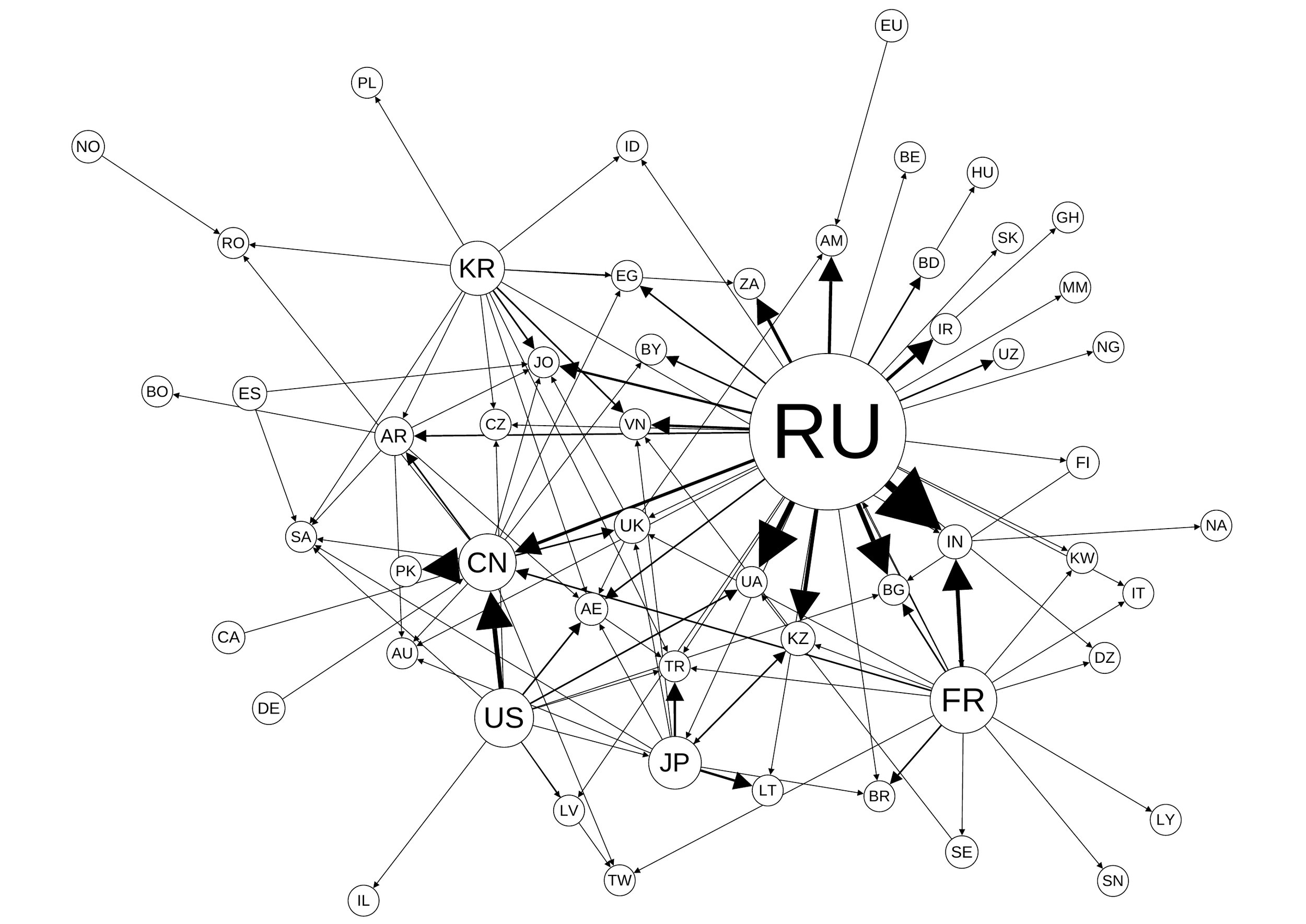POLET at Climate breakfast seminar and roundtable on the future of carbon capture and storage
Tsimafei Kazlou shared POLET research on the feasibility of carbon capture and storage technologies to Norwegian policymakers and industry representatives
Masahiro Suzuki defends his PhD and receives two scientific awards
Masahiro Suzuki defended his PhD summa cum laude at Central European University and receives two scientific awards for his research.
POLET at the 3rd International Conference on Negative CO2 Emissions: Feasible deployment of carbon capture and storage and the requirements of climate targets
Tsimafei Kazlou presented POLET research on the feasibility of carbon capture and storage technologies at the 3rd International Conference on Negative CO2 Emissions 2024 in Oxford, UK
POLET session at What Works Climate Solutions Summit 2024
POLET research group hosts session on accelerating energy transitions at What Works Climate Solutions Summit 2024 in Berlin
Renewables growth in China and normalising normalisation
Renewable power capacity additions in China often attract widespread attention for their sheer magnitude. But how useful are these raw numbers without considering the size of the country? Using installed capacity per capita and renewables’ share of national electricity production as illustrative examples, I make a case for normalising data when making inter-country comparisons. In addition to offering richer insights into the pace and extent of energy transitions, such analyses allow for a more nuanced view of change, help contextualise progress and set more realistic expectations.
Feasibility of decarbonising electricity in G7 by 2035
G7 countries and the European Union have committed to decarbonise electricity by 2035. Is this target feasible? We show that it would require expanding low-carbon electricity 4.5 times faster and reducing fossil-based electricity 2 times faster than in 2015-2020 between 2020 and 2035. Unfortunately in 2021, most G7 countries increased the use of fossils and slowed down the growth of low-carbon electricity, making it even more challenging to achieve the target by 2035.
Nuclear power worldwide is also affected by Russia’s war in Ukraine
Russia’s invasion of Ukraine has massively disrupted global and European energy markets. While most of the attention has focused on the EU’s dependence on Russian gas and oil supplies, Russia is also at the center of global nuclear power. The current crisis could lead to shifts in supplies of nuclear technologies which reverberate for decades to come.
Global growth of wind needs to be double as fast as recent growth in Germany to meet IEA’s Net Zero by 2050
The IEA Net Zero 2050 Roadmap envisions adding 310 GW of onshore wind in 2030. This is the same as was added globally in the last five years. Has such a rate been ever achieved in any country?
Can UK eliminate emissions from residential heating by deploying heat pumps as fast as Finland?
Replacing gas heating with heat pumps would reduce 90% of UK’s direct greenhouse gas emissions from the residential sector. Here we look at whether such a replacement would be feasible if the UK would adopt heat pumps as fast as one of the leaders in this technology, Finland.








